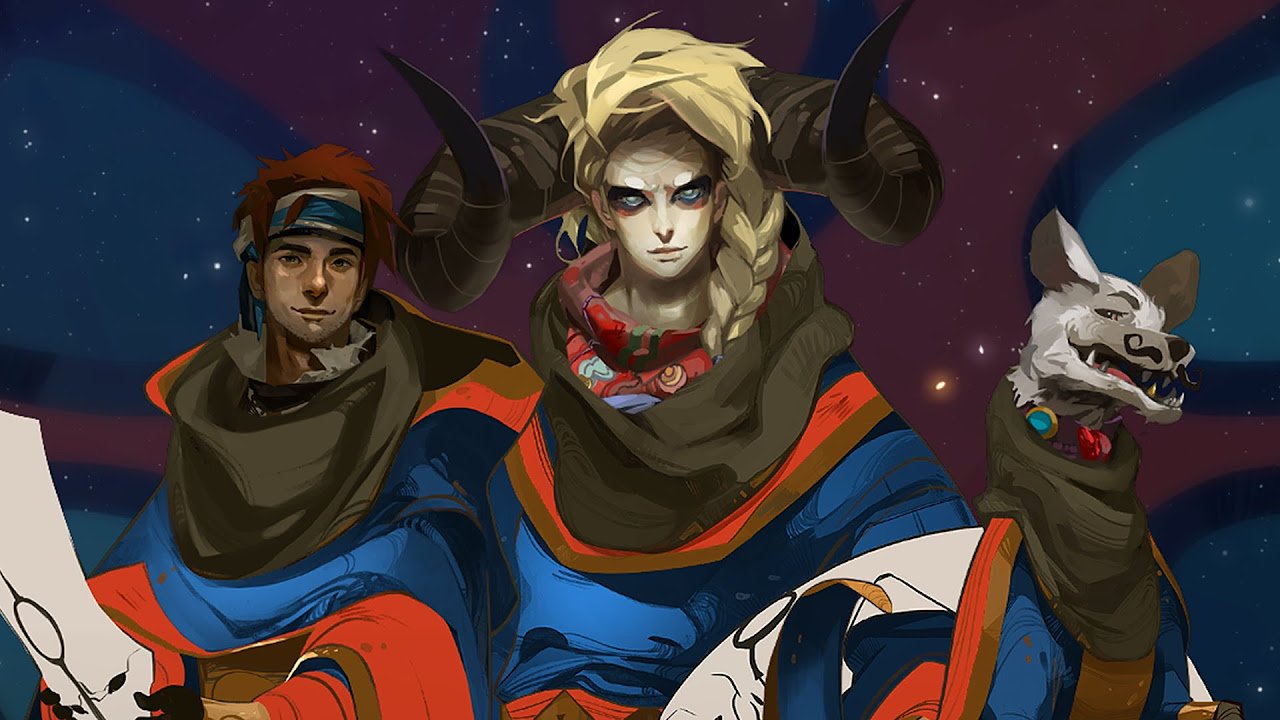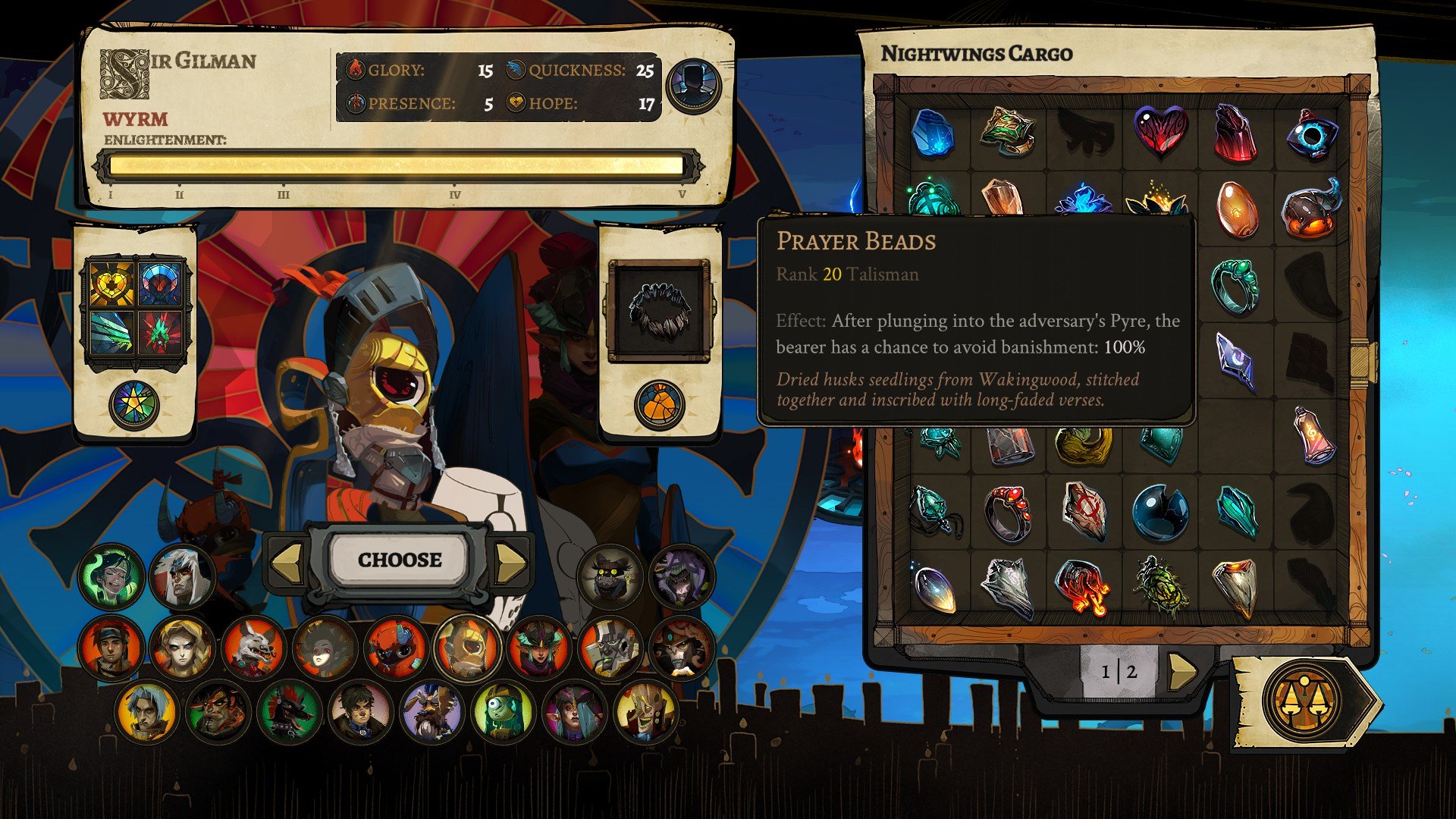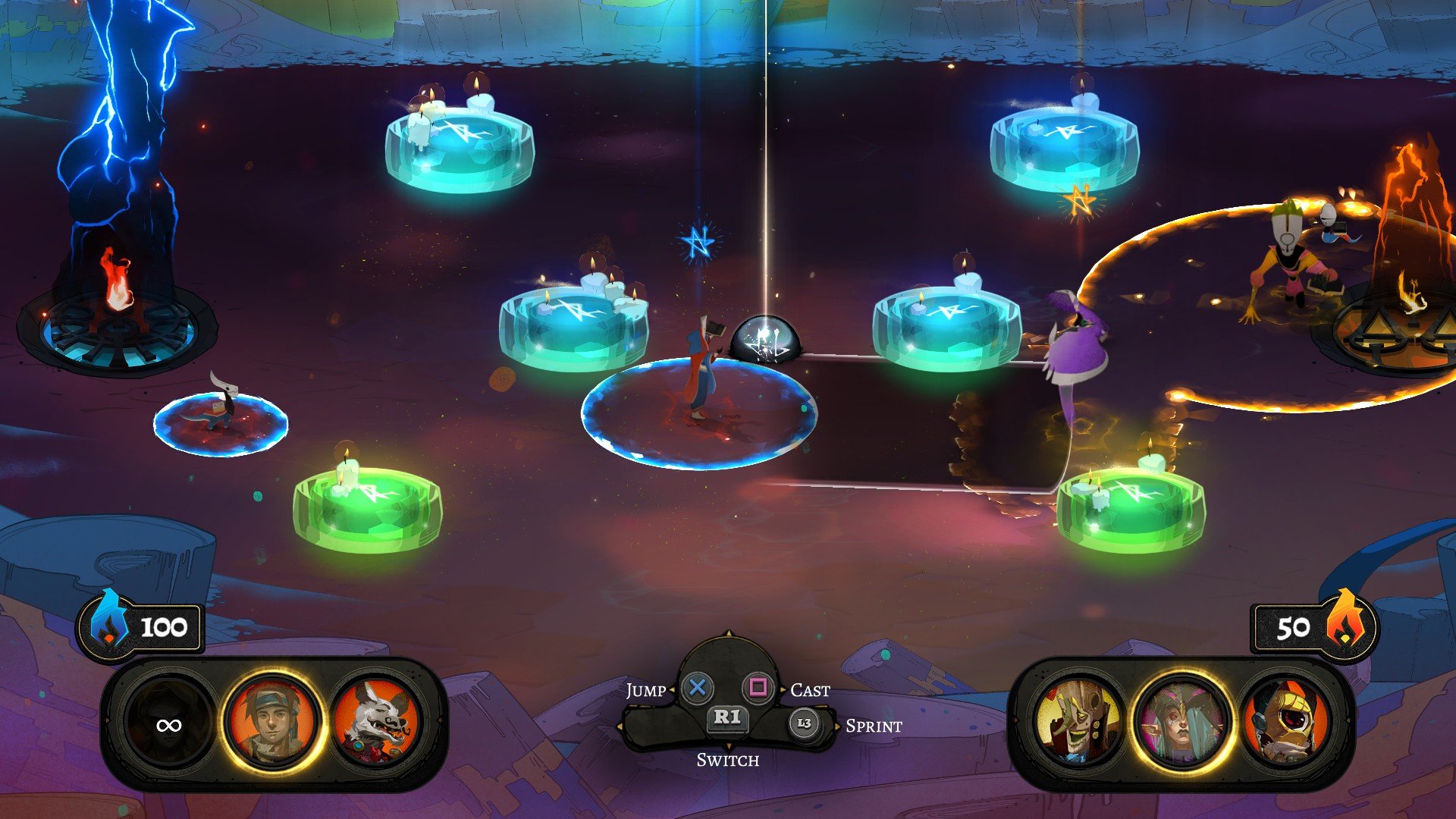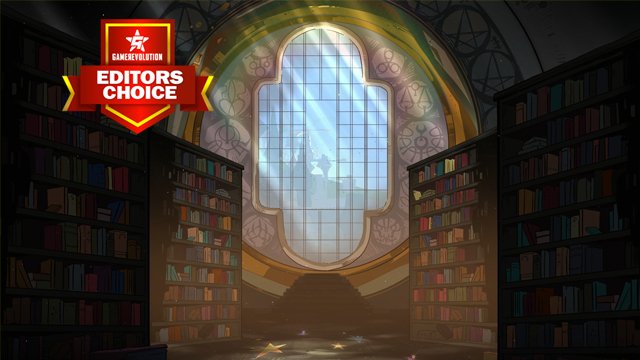With just two days of release under its belt, Pyre has already turned into quite the sensation. Indeed, one would expect nothing less from Supergiant Games, the studio behind both Bastion and Transistor, each of which have appeared on countless “Best Indie Games of All Time” lists.
That said, Supergiant Games has kept with its formula of not keeping to a formula, creating yet another entirely new core game mode that uses the framework of 3-on-3 basketball, but fuses it with rugby and high-fantasy. If it sounds like I’m describing a sports game instead of a whimsical action role-playing game, that theme will come up again, I promise. But whatever it is Supergiant Games has created this time in Pyre, it’s as close to perfect as any other game that’s come out this year.
Sporting Goods

I went into Pyre completely blind, having no idea what I was getting myself into. Was it going to be like Bastion, or Transistor? Was I going to need an intricate knowledge of Supergiant Games to really enjoy it?
Of all the things I expected Pyre might be, I didn’t think I’d be getting anything close to a sports game. While hyperbolic claims that it actually is a sports game miss the mark, to say the least, it’s not a hard comparison to make, and the observation is not unique to any one reviewer. You control a team of three characters ultimately trying to shoot or carry a ball into a circular area of an opposing team of three characters. It’s impossible not to make a comparison to sports, particularly 3-on-3 basketball.
That said, even if you just play it as a sports game, it’s a damn good sports game. It’s fast-paced, intricate fun that only gets more in-depth when you add in the decidedly not sports-game elements.
…even if you just play it as a sports game, it’s a damn good sports game.
This game mode, called Rites in Pyre, works a bit like Tag as well. Each character has an Aura in a circle around them that they can also launch in an area around them. If an enemy comes into contact with your Aura, they are banished for a matter of seconds, allowing you an opportunity to score.
However, if a character scores by carrying the Orb into the opposing Pyre, that character is then banished for the entire next round, so you can’t just score with the same character over and over again. These rules make for one of the most original game modes I’ve ever had the pleasure of experiencing, keeping Pyre fresh each round.
Exile-ent RPG Elements

The characters in Pyre are called “Exiles”, due to their banishment to a purgatory-like realm where people compete in ancient Rites to seek freedom. It’s in this seeking of freedom that Pyre both firmly establishes itself as among other Action RPGs and sets itself apart from them.
I won’t go out on a limb or make any hyperbolic statements about Pyre being the only one to do this, but I certainly have never played a party-based RPG where you regularly lose members of your party. The standard RPG formula is to just give the players a ton of options of characters to choose from, let them choose a small section of them, and then run with it for the entire game. That’s not how things work in Pyre.
Every two or three Rites in Pyre turn into what’s called a “Liberation Rite,” where you choose one Exile from your party to be Liberated, meaning they will no longer be in the game. To make matters worse, only the top three Exiles with the most experience can be chosen for Liberation, so you can’t just pick your least-played party members until the end of time.
I’ve heard some people complain that Pyre’s gameplay is too repetitive, but I can’t imagine they got very far into the game to make that assessment. Each Exile plays drastically differently, requiring you to use change your strategy during these Rites each time you jump into one. You also might have to alter up your picks depending on what opposing group you’re playing against, and which Exiles they’re bringing into the fight. These elements shake up the Rite formula just enough to keep it entertaining throughout its 12+ hour run time.
This isn’t even counting the unique skill-tree system, which includes eight unique abilities for each of nine different characters who can only ever learn four of those abilities, and 46 items (called Talismans) to level up and assign to these characters as you see fit. It’s a surprisingly in-depth and strategic system, so much so that it required a 2,000+ word guide.
This kind of follow-through makes Pyre more than just a one-trick pony; it doesn’t rest on its laurels using Rites as the sole gimmick that’s beaten to death by the end. It follows it up with solid RPG mechanics that keep you coming back for not only the whole game, but subsequent playthroughs and the offline versus mode as well.
Full Control

I was preparing to complain about the control scheme, because the default PC controls and any of the available presets are total gutter trash. But my worries were assuaged when I found out that every keystroke can be changed and customized, and even better, Pyre has native support for the PS4 controller on PC. Each of those buttons can even be customized.
With this, I was able to craft a pretty solid control scheme—which makes the most logical sense and requires the fewest button presses—and it completely eliminated any complaints I may have had.
Even more surprising, though, was that every on-screen tool-tip that shows up either in-game or during a loading screen will change based on how you mapped the controls. So, if you mapped the jump button to X (which you should), any tooltip showing you how to jump will tell you to press X. This underscores Supergiant Games’ attention to detail and care for the little things, which make a huge different between great games that have a few nagging flaws and truly transcendent games that have a solid foundation, and that’s what Pyre is.
Indeed, even other nitpicks I might think to bring up can either be changed or seem inconsequential. I didn’t like the controls, so I changed them. I didn’t like that normal difficulty was too easy, so I switched it to high and found it a worthy challenge. The story isn’t wrapped up in a neat bow, but it is beautifully told, and do I really want everything spoon-fed to me? There’s no New Game Plus, but would that really make sense after finishing the game with only three Exiles remaining? No, these are ultimately small potatoes so as to be not even worth mentioning.
Conclusion
The truth is that Pyre does exactly what it set out to do, with no caveats or qualifiers. It created a truly original core game mode and backed it up with solid RPG mechanics that extend the game’s already impressive longevity for a $20 game.
And sadly, this only tells half of the story. If I had the time, I could go on forever about how Pyre’s art and animations stand up with some of the best of their style and, of course, how the soundtrack is a must-listen.
The main takeaway here is that Pyre is a game-changer. It’s a shoo-in for best indie game of the year, and it will be a crime if it isn’t at least competing for Game of the Year by the time December rolls around. As someone who walked in without any expectations, color me surprised.
James Kozanitis is the Features Editor of GameRevolution. You can follow him on Twitter @JamKozy.
A PC copy of Pyre was provided by its publisher. Pyre is also available on PS4.
-
Incredibly fun, original gameplay
-
In-depth RPG elements
-
Game stays fresh throughout multiple playthroughs
-
Challenging A.I. that really knows its own game mode
-
Beautiful art and animation style
-
Well-made original soundtrack
-
Emotional, well-told story
-
Fully customizable controls
-
No online multiplayer








